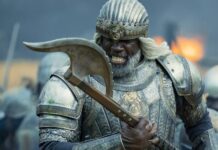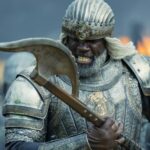No one knows what happens if Kim dies — and that is precisely the problem. Kim’s death would leave North Korea dealing with an unplanned succession for the first time in its 72-year history. Kim Jong Il had been preparing to succeed his father Kim Il Sung for two decades when he took over in 1994, while Kim Jong Un had a few years to prepare before his father Kim Jong Il’s death in 2011. But Kim Jong Un is too young to have cultivated his own successor, and his only known son is barely of elementary school age. If Kim dies, it is uncertain who will prevail in North Korea’s “Game of Thrones.”
The most likely outcome is that Kim’s sister, Kim Yo Jong, would take over. The state deifies the Kims, and no other family member is as well positioned. Kim already had his half brother and his uncle killed. Kim has an older brother, Kim Jong Chul, but he was already passed over for the leadership by his father because, like Fredo Corleone, he was considered too weak. Finally there is Kim Jong Un’s uncle Kim Pyong Il who served as a diplomat abroad for 40 years and only recently returned to Pyongyang. He is more likely to be an adviser to Kim Yo Jong than ruler himself.
Kim Yo Jong has been one of Kim’s most trusted advisers and was recently promoted to alternate member of the Politburo. The only question is whether in a Confucian, male-dominated society, the elites would support a young woman as supreme leader. If she does prevail, she would likely preserve Kim’s policies of limited economic liberalization, an expansion of its weapons of mass destruction and a diplomatic offensive to gain greater international recognition and a relaxation of sanctions.
If Kim Yo Jong fails to secure power and leadership passes for the first time outside the Kim family, the most likely successor would be Vice Marshal Choe Ryong Hae, a Politburo member and vice chairman of the Workers Party of Korea. His family is close to Kim Yo Jong, but he also has an incentive to fight for power rather than to support the next Kim family member in line, because when Kim Jong Un took over, he executed the second- and third-most powerful members of the regime. Choe himself has been purged in the past. He may conclude that the only way to stay alive is to take over. If he prevails, he would also likely preserve the status quo — albeit with less flair in international settings than Kim has shown.
The least likely but most dangerous scenario is that no one emerges as Kim’s successor and, instead, multiple leaders grapple for power for a protracted period. If this were to occur, North Korea could become unstable, leaving control of its nuclear arsenal unclear.
Kim is obese, smokes and drinks heavily, and has a family history of heart disease, so no matter what happens now, his health will remain a major risk factor for the regime. The Trump administration needs to open a dialogue now with North Korea’s most important ally and trade partner — China — to discuss how the two countries would react in the event of regime instability to avert the worst possible contingencies. The longer it takes to organize humanitarian efforts, the higher the number of North Koreans who might perish or leave their homes, and the longer weapons of mass destruction are left unsecured, the greater the risk that they will disappear across international borders.
The administration should also initiate a dialogue with Chinese leaders about the future of North Korea — even if Kim survives for now. Are there any circumstances — such as a withdrawal of U.S. troops from South Korea — under which Beijing might support Korean reunification? If not, would Beijing at least be willing to press for a reform-minded North Korean leader who would initiate Chinese-style economic liberalization and even denuclearize? If so, and if South Korea agrees, the United States could offer sweeteners such as the prospect of sanctions relief and a troop reduction.
It’s unfortunate that President Trump’s trade war with China and mutual finger-pointing over the coronavirus have divided Washington and Beijing just when it’s so important for them to work together. The United States also needs to coordinate closely with allies South Korea and Japan — and that means concluding the drawn-out negotiations over how much Seoul will pay to support U.S. troops.
Odds are that the North Korean regime will stagger along no matter what is happening with Kim, just as it survived the death of Kim’s grandfather and father, but you never know. Few predicted the collapse of East Germany in 1989. Winter could be coming sooner than anyone expected in North Korea’s game of thrones. We had better be ready.




















![[Book Review] The Blade Itself (The First Law Trilogy) by Joe Abercrombie](https://bendthekneegot.com/wp-content/uploads/2018/01/1516047103_maxresdefault-218x150.jpg)
















